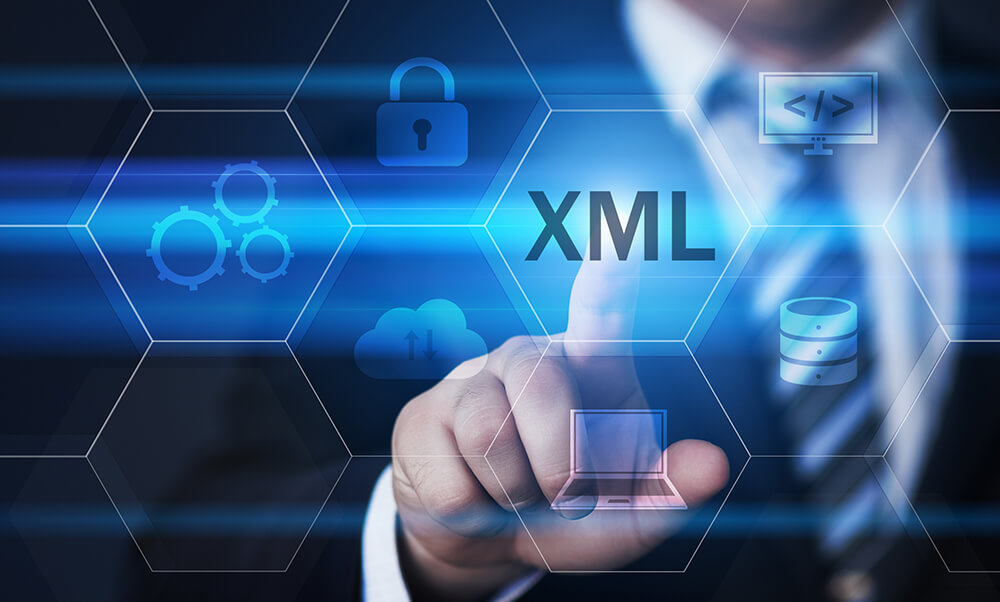Get in touch with your Bechtle account manager, send an e-mail to sales@bechtle.pt or call us on: +351 234 100 640. We’re happy to help.

Share digital documents, electronic invoices and additional data.
The benefits of electronic orders and invoicing are clear: Electronically transmitting orders and invoices is less time-consuming and reduces the costs. Many businesses have been using digital ordering and invoicing processes to optimise internal processes and cut costs. Moreover, electronic invoicing has been obligatory in the public sector since November 2020 without exception. Bechtle offers its customers secure and simple sharing of digital documents, order and electronic invoices.
Find out here how electronic processing of customer orders and invoices can be automated and which standards and technical opportunities we can offer. We transmit your data and invoices easily and securely for seamless digital process workflows.
Order transmission – Automated and secure.
Ideally, an order that is generated in the ERP system or customer marketplace is sent to the Bechtle B2B gateway via an XML gateway such as SAP XI/PI/PO or another EDI platform. Alternatively, it can be sent as an e-mail attachment.
After a final automated check, the data are then prepared for further processing by the Bechtle ERP system. Automatic test criteria can be adapted according to the customer’s wishes. We then pass this data on to the respective Bechtle location, which will, after a final automated due diligence check, process and fulfil the order.


The use of standardised, globally established interfaces/data transmissions for sharing digital documents has enormous benefits. They can be used across industries, focus on structured elements, deliver considerably shortened project times, lower costs and reduce the occurrence of errors during operation.
Martin Meyer, Senior Digital Transformation Manager at Bechtle

Overview of supported XML standards.
Bechtle can process e-orders submitted by customers with the following XML standard:
- SAP IDOCXML
- cXML
- open TRANS
- xCBL
- UBL 2.0
- DIN5XML
We are also able to accept EDIFACT D96A / D97A standard orders. However, this may add significantly to the project scale.
We recommend a secure transfer of order data to a web server via HTTPS POST. Bechtle also supports (S)FTP and AS2, as well as unencrypted transfers via HTTP or e-mail attachments. However, HTTP and e-mail are not encouraged and are exclusive to specific scenarios where unsecured transfers may be necessary.
What is an e-invoice?
An e-invoice is a data set structured according to strict specifications. E-invoicing requires the data set to be created, transmitted and received in an electronic format and it must also be possible for it to be further processed automatically. The data set’s content and format for e-invoices is defined in a European-wide standard (EN 16931). E-invoices have the same content and legal consequences as a paper invoice.
When should you start thinking about e-invoicing?
Our experience shows that it is better to consider the topic later on. Before it can be introduced, it’s important that catalogue / PunchOut and XML order integration run smoothly. We also advise that both parties must adhere to strict legal requirements governing electronic invoices.
Transmitting data to classify products and services.
There are a number of classification systems that have been designed to catalogue products and services in ERP systems and marketplaces. This enables businesses to exchange product data across industries, countries, languages and organisations using shared and unambiguous terminology.
The most popular standards are:
- eCl@ss – Used primarily in Europe
- UNSPSC – Used primarily in the Americas (unspsc.org)

* mandatory fields
Please read our Privacy Policy for information on how we process your data and protect your rights as da data subject.

